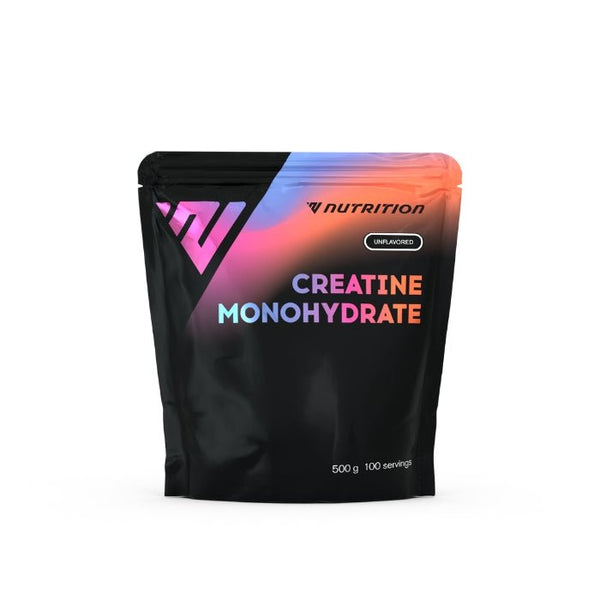Baltymai - naujausias madingas žodis dėl naujų populiarių baltyminių dietų arba dėl to, kad kasdien vartojama vis daugiau baltyminių papildų.
Daug baltymų turinčios dietos nauda:
- Didina sotumo jausmą;
- Skatina riebalų nykimą;
- Padeda didinti raumenų masę;
- Gerina širdies ir kraujagyslių sistemos rodiklius.
Moksliškai įrodyta, kad padidėjusio baltymų suvartojimo poveikis žmogaus organizmui yra toks [1, 2, 3, 4, 5, 6]. Tačiau tai kelia susirūpinimą dėl per didelio baltymų kiekio, nes kai kurie mokslininkai mano, kad per didelis baltymų kiekis gali prisidėti prie įvairių sveikatos problemų, pavyzdžiui, inkstų, kepenų ir širdies ligų ar osteoporozės, atsiradimo. Ar šie nuogąstavimai pagrįsti?
Kokį poveikį sveikatai ir savijautai daro per didelis baltymų kiekis?
Kokį poveikį kepenims daro per didelis baltymų kiekis?
Dėl per didelio baltymų kiekio kraujyje gali padidėti amoniako (toksinės medžiagos) koncentracija. Sveikos kepenys baltymų katabolizmo metu susidariusį amoniaką perdirba į netoksišką karbamidą, kurį iš organizmo pašalina inkstai. Tačiau kepenų gebėjimas amoniaką paversti karbamidu yra ribotas, todėl nerekomenduojama vartoti per daug baltymų [7].
Kokį poveikį inkstams daro per didelis baltymų kiekis?
Per didelis gyvulinių baltymų kiekis didina kalcio išsiskyrimą su šlapimu, o tai ilgainiui didina kalcio oksalato inkstų akmenų riziką [10]. Tačiau šią riziką galima sumažinti vartojant daugiau vandens, vaisių, daržovių ir maisto produktų, kuriuose yra daug kalcio.
Per didelis baltymų kiekis kelia susirūpinimą dėl inkstų funkcijos. Teiginys, kad saikingas baltymų vartojimas naudingas žmonėms, sergantiems inkstų nepakankamumu arba kuriems gresia jo rizika, yra teisingas. Tačiau tai nereiškia, kad didelis baltymų vartojimas didina inkstų nepakankamumo riziką sveikiems žmonėms [7, 8]. Tyrimai, kurių metu buvo tiriamas per didelis baltymų kiekis maiste, nepriklausomai nuo to, ar respondentas yra sportininkas, ar ne, rodo, kad nėra įrodymų, jog tai turi neigiamą poveikį inkstų funkcijai [6, 7, 8, 9].
Daug baltymų turinčios dietos ir svorio augimo ryšys
Nors 1 g baltymų ir 1 g angliavandenių atitinka 4 k kal, daug baltymų turinčiai dietai palaikyti organizmui reikia daugiau energijos, palyginti su daug angliavandenių turinčia dieta. Keletas tyrimų rodo, kad daug baltymų turinti dieta padeda kontroliuoti svorį [1, 2, 3, 4, 5, 6, 7]. Tyrimo metu net ir minimaliai padidinus su maistu gaunamų baltymų kiekį (iki daugiau nei 3 g/kg kūno svorio), sumažėjo riebalų prieaugio procentinė dinamika. Tokie patys pastebėjimai buvo analizuojami ir didėjant suvartojamų kalorijų kiekiui [10, 11]. Tai nereiškia, kad galite neribotai didinti suvartojamų baltymų kiekį ir nepriaugti viršsvorio. Be kitų veiksnių, daugelyje baltymų turinčių maisto produktų taip pat yra daug riebalų. Norint gauti daugiau baltymų nedidinant kūno masės, svarbiausia - planuoti mitybą ir reguliariai sportuoti.
Ar per didelis baltymų kiekis kenkia širdies sveikatai?
Priešingai, nei žmonės galvoja, daug baltymų turinti dieta nepadidina širdies ligų rizikos [7]. Keletas tyrimų rodo, kad, laikantis daug baltymų ir mažai angliavandenių turinčios dietos, pagerėja širdies ir kraujagyslių sistemos rodikliai [1, 3, 12], pavyzdžiui, sumažėja lipoproteinų, trigliceridų ir cholesterolio kiekis [1, 7]. Vienintelė problema ta, kad baltymų šaltiniuose dažnai būna daug sočiųjų riebalų, kurie kenkia širdies ir kraujagyslių sveikatai. Taip pat reikėtų nepamiršti, kad reikėtų didinti ne tik baltymų, bet ir širdies ir kraujagyslių sveikatai svarbių maisto produktų grupių, pavyzdžiui, vaisių ir daržovių, suvartojimą.
Kaip daug baltymų turinti dieta veikia organizmo pH lygį?
Skirtingai nuo vaisių ir daržovių (natūraliai šarminių), baltymų ir grūdų medžiagų apykaita didina organinių rūgščių kiekį kraujo plazmoje ir taip mažina pH lygį. Rūgščių ir šarmų aplinkos homeostazės pokyčiai neigiamai veikia jūsų sveikatą, tačiau organizmas turi fiziologinių mechanizmų, kurie užtikrina pastovų pH lygį. Tačiau rekomenduojame kompensuoti padidėjusį baltymų suvartojimą sumažinant grūdinių produktų kiekį ir padidinant vaisių ir daržovių kiekį. Taip jūsų organizmui nereikės įjungti kompensacinių mechanizmų.
Baltymų vartojimas ir piktybiniai navikai: ar yra rizika?
Ryšio tarp didesnio baltymų suvartojimo ir piktybinių navikų išsivystymo nėra. Kai kurie tyrimai rodo, kad didelis mėsos (raudonos mėsos) vartojimas didina tam tikrų piktybinių navikų riziką. Tačiau ši konkreti rizika susijusi ne su baltymais, o su mėsos riebumu [7, 13]. Todėl didžiąją dalį baltymų turėtumėte gauti iš žuvies ir liesos mėsos.
Ar saugu vartoti daug baltymų turinčius maisto papildus?
Baltymų papildai, pavyzdžiui, išrūgų baltymai, neturi neigiamo poveikio sveikatai, jei jų nevartojate per daug, t. y. neviršijant rekomenduojamos paros normos (porcijos). Pasak Sporto mitybos draugijos , maisto papildai yra saugus būdas gauti reikiamą kiekį kokybiškų baltymų [12,14].
Kaip jau minėjome, daug baltymų turinčios dietos turi nemažai privalumų, dažniausiai susijusių su svorio mažinimu, svorio kontrole, padidėjusia raumenų mase ir pagerėjusiais širdies ir kraujagyslių sistemos sveikatos rodikliais [1, 2, 3, 4, 5, 6].
Tyrimai, atlikti su sveikais žmonėmis, rodo, kad šios dietos tiriamuoju laikotarpiu nekėlė pavojaus sveikatai [6, 15]. Tačiau tam tikrais atvejais baltymų vartojimas gali turėti neigiamą poveikį: kai jau yra sveikatos būklė, kurią gali pabloginti daug baltymų turinti dieta, arba kai padidėjęs baltymų vartojimas nėra subalansuotas su vaisių ir daržovių vartojimu, vandens vartojimu ir (arba) per dideliu baltymų kiekiu.
Priešingai nei daugelis mano, galimas neigiamas poveikis, susijęs su baltymų vartojimu, dažniausiai atsiranda dėl per didelio jų kiekio nesubalansuotoje mityboje, o ne dėl baltymų kilmės (gyvulinės, augalinės ar papildų).
Kiek baltymų turėčiau suvartoti?
Rekomenduojama baltymų paros norma tiek vyrams, tiek moterims yra vienoda - 0,8 g kilogramui kūno svorio per dieną [7]. Tai mažiausias baltymų kiekis, kurį reikėtų suvartoti, kad organizmas neprarastų azoto [16, 17]. Tačiau šis kiekis nebuvo atnaujintas kelis dešimtmečius, o keliuose tyrimuose rekomenduojama peržiūrėti rekomenduojamas vertes, atsižvelgiant į teigiamą daug baltymų turinčios mitybos naudą sveikatai [16].
Reguliariai sportuojantiems žmonėms Tarptautinė sporto mitybos draugija rekomenduoja kasdien suvartoti 1,4-2,0 g baltymų kilogramui kūno svorio per dieną, kad būtų išsaugota arba padidinta raumenų masė. Jei norite padidinti raumenų masę ir kartu sumažinti kalorijų kiekį, reikėtų suvartoti daugiau baltymų. Tačiau rekomenduojama iki 35 % paros energijos gauti iš baltymų [7, 12, 14].
Priimtinas baltymų makroelementų pasiskirstymo intervalas yra 10-35 % visų paros kalorijų [7,12,14]. Atsižvelgdamas į šį intervalą, kiekvienas žmogus turėtų pritaikyti kasdienį baltymų suvartojimą prie savo poreikių, atsižvelgdamas į savo svorį, fizinį aktyvumą ir tikslus.
Išvados
Nedaug tyrimų parodė, kokį poveikį sveikatai turi per didelis baltymų kiekis. Taip yra dėl to, kad net žmonėms, kurie valgo tik mėsą, retai pavyksta pasiekti, kad 35 % per parą suvartojamos energijos būtų gaunama iš baltymų, nes juose yra riebalų. Tačiau buvo pranešta apie kelis per didelio baltymų suvartojimo atvejus, susijusius su išskirtinai liesos mėsos vartojimu, dažniausiai tarp ekspeditorių. Jiems gana greitai pasireiškė galvos skausmas, pykinimas, viduriavimas ir simptomai, kurie išnyksta sumažinus baltymų vartojimą [7].
Nuorodos:
-
Wycherley, T. ir kt. Daug baltymų ir mažai riebalų turinčių dietų, kuriose ribojama energija, poveikis, palyginti su standartinėmis baltymų ir mažai riebalų turinčiomis dietomis: atsitiktinių imčių kontroliuojamų tyrimų metaanalizė. The American Journal of Clinical Nutrition, 2012. 96: 1281-1298.
-
Krieger, J.K. ir kt. Baltymų ir angliavandenių suvartojimo skirtumų poveikis kūno masei ir sudėčiai energijos ribojimo metu: metaregresija. Mitybos ir energijos suvartojimo ribojimo metaanalizė.
-
Leidy, H. J. ir kt. Baltymų vaidmuo mažinant ir palaikant svorį. The American Journal of Clinical Nutrition, 2015. 101(Suppl):1320S-9S.
-
Cuenca-Sánchez, M. ir kt. Daug baltymų turinčios dietos vartojimo kontroversijos: sotumo efektas ir inkstų bei kaulų sveikata. Advances in Nutrition, 2015. 6: 260-266.
-
Aragon, A.A. ir kt. Tarptautinės sporto mitybos draugijos pozicija: mityba ir kūno sudėtis. Tarptautinės sporto mitybos draugijos žurnalas, 2017. 14:16.
-
Antonio, J. ir kt. Daug baltymų turinčios dietos poveikis sveikatos rodikliams ir kūno sudėčiai - kryžminis tyrimas su pasipriešinimą treniruojančiais vyrais. Tarptautinės sporto mitybos draugijos žurnalas, 2016. 13:3.
-
Institute of Medicine, Dietary reference intake for energy, carbohydrate, fiber, fatty, fatty acids, cholesterol, protein, and amino acids (Macronutrients). 2005, Washington, DC: The National Academies Press.
-
Martin, W. F. ir kt. Su maistu gaunamų baltymų kiekis ir inkstų funkcija. Mityba ir metabolizmas, 2005. 2:25.
-
Antonio, J. ir kt. Daug baltymų turinti dieta neturi žalingo poveikio: vienerių metų kryžminis tyrimas su pasipriešinimo treniruotais vyrais. Journal of Nutrition and Metabolism, 2016. 2016:9104792.
-
Antonio, J. ir kt. Daug baltymų (4,4 g/kg/d) turinčios dietos poveikis kūno kompozicijai treniruojamiems asmenims. Tarptautinės sporto mitybos draugijos žurnalas, 2014. 11:19.
-
Antonio, J. ir kt. Daug baltymų (3,4 g/kg/d) turinti dieta ir intensyvi pasipriešinimo treniruočių programa pagerina sveikų treniruotų vyrų ir moterų kūno sudėtį. Tarptautinės sporto mitybos draugijos žurnalas, 2015. 12:39.
-
Jäger, R. ir kt. Tarptautinės sportinės mitybos draugijos pozicija: baltymai ir fizinis krūvis. Tarptautinės sporto mitybos draugijos žurnalas, 2017. 14:20.
-
Nilsson, L. ir kt. Mažai angliavandenių ir daug baltymų turinčios dietos vertinimas ir vėžio susirgimo rizika; perspektyvinis kohortinis tyrimas. Mitybos žurnalas, 2013. 12:58.
-
Thomas, D.T. ir kt. Mityba ir sportiniai rezultatai. Medicine and Science in Sports and Exercise, 2016. 48(3): 543-568.
-
Nilsson, L. ir kt. Mažai angliavandenių ir daug baltymų turinčios dietos vertinimas ir vėžio susirgimo rizika; perspektyvinis kohortinis tyrimas. Mitybos žurnalas, 2013. 12:58.
-
Wolfe, R. ir kt. Baltymų suvartojimo optimizavimas suaugusiesiems: rekomenduojamos mitybos normos aiškinimas ir taikymas, lyginant su priimtinu makroelementų pasiskirstymo intervalu. Advances in Nutrition, 2017. 8:266-75.
-
Mokslinė nuomonė dėl baltymų maistinių normų. EFSA žurnalas, 2012. 10(2):2557.







